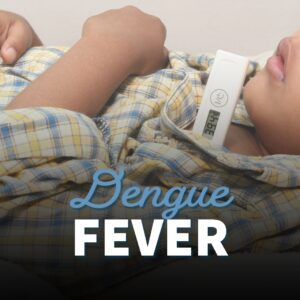Pediatric Care: Signs a Small Child May Not Feel Well
 When you are caring for an infant or toddler who is unable to express themselves verbally, it can oftentimes be difficult to determine when they aren’t feeling well. Because of this, it is vital to pay special attention to various behaviors or symptoms they are exhibiting to help decide if medical assistance is necessary.
When you are caring for an infant or toddler who is unable to express themselves verbally, it can oftentimes be difficult to determine when they aren’t feeling well. Because of this, it is vital to pay special attention to various behaviors or symptoms they are exhibiting to help decide if medical assistance is necessary.
Fever
A fever in any child is the first indication something may be wrong. Most often, a low-grade fever can be caused by a simple cold or virus and may be treated using an at-home medication until it breaks. However, there are some instances that will require a visit to the doctor. For babies 3 months and younger, a rectal temperature of 100.4 F or higher should be evaluated right away, because it may indicate a serious bacterial infection. Over 3 months of age, any fever that is not accompanied by cold symptoms and lasts longer than 24 hours should be investigated, as well.
Sometimes, young children can run a fever but not have much change in the way they behave. In those cases, you can most likely treat at home until the fever breaks. However, if your child is not responding to you like normal, or seems to have a change in typical behavior, contact your doctor right away.
Jaundice
This condition is common in newborns and is known for turning skin or eyes yellow. A newborn’s liver doesn’t always fully function right away, making them unable to break down bilirubin within the blood. Typically, jaundice is mild and clears up on its own. Doctors look for it prior to going home after birth, as well as at the baby’s first checkup, as this is when it most commonly occurs. However, if you notice the skin or eyes yellowing, bring the child to the doctor for an exam.
Jaundice may only require extra feedings to be treated, but sometimes, exposure to special lights will be needed to aid in removing the bilirubin from the baby’s blood.
Rashes
Babies have very sensitive skin and can get rashes from any number of sources, from diaper rash to a breakout from a new laundry detergent. If your baby develops a rash that fades for a moment when you press your finger on it, it is most likely nothing serious. If the rash appears as tiny red dots on the chest, back, arms or legs that do not fade with pressure, visit the doctor or ER immediately as this could indicate a more serious infection like meningitis.
Vomiting or Diarrhea
Babies and small children who suffer from vomiting or diarrhea will require more observation than those who are older simply because they can quickly become dehydrated – less than 12 hours in some cases. If you notice your child’s diapers are dry, contact a doctor right away, as IV fluids may be required.
Also, if you notice any blood or bile in vomit, or blood or mucus in stool, have them evaluated as soon as possible.
Difficulty Breathing
Because the airways of small children are much narrower to begin with, some illnesses can lead to breathing difficulties, such as RSV, bronchiolitis, or pneumonia. They will be inhaling and exhaling very quickly and you will notice a spot in the middle of their chest sinking in. Also, if you observe their breathing and can see the space between the ribs being pulled in each time, take them to an emergency room right away.
If they are coughing constantly, it could indicate asthma or an object was inhaled. In either case, a medical evaluation will be needed to determine if a long-term treatment plan is required, or if they may need to have a procedure to remove the object.
Constant Crying
While some crying is definitely expected, a child who is crying all day and cannot be comforted at all may need medical attention. Contact the child’s doctor first for advice, but if you are unable to reach them, go to the ER. Sometimes, the crying can be caused by something like a hair wrapped around their toe, but it could be more serious, such as a bowel problem.
Children can’t always tell us what hurts, or what doesn’t feel “right,” so as parents and caregivers, it is vital to know what is considered abnormal behavior to help determine if something is wrong. Of course, in any instance you aren’t quite sure, it is best to bring your little one in for a check-up just in case, as well as for your own peace of mind. We offer convenient locations and daily hours to help evaluate your child without having to deal with ER waiting rooms, even when other doctors’ offices are closed.




